Introduction:
The trucking industry serves as the lifeblood of global commerce, transporting goods across vast distances. However, with great power comes great responsibility. The importance of safety and regulations for truckers cannot be overstated. By adhering to stringent safety measures and regulations, truckers play a vital role in safeguarding lives, preventing accidents, and upholding industry integrity.
Promoting Road Safety:
The foremost reason for prioritizing safety and regulations in the trucking industry is to promote road
safety for all. Trucks are substantial vehicles that require skilled and attentive drivers. Complying with
safety regulations helps mitigate risks associated with the size and weight of trucks, ensuring safer roads
for truckers and other motorists.


Preventing Accidents and Reducing Fatalities:
Adhering to safety regulations is a crucial step in preventing accidents and reducing fatalities. Regulations cover various aspects, such as vehicle maintenance, load securing, and driving practices. Regular inspections and adherence to maintenance protocols minimize the chances of mechanical failures that can lead to accidents. Properly secured cargo prevents shifting during transit, reducing the risk of incidents. Moreover, safety regulations often address driver fatigue, a significant factor in trucking accidents. By ensuring sufficient rest and work hours limitations, regulations help combat driver fatigue and enhance road safety.

Driver Well-being and Health:
Safety regulations also prioritize driver well-being and health. They establish guidelines for working hours, rest breaks, and mandatory rest periods. By promoting proper rest and reducing fatigue, these regulations enhance driver alertness and overall health. As fatigue is a leading cause of accidents, well rested truckers are better equipped to navigate the roads safely, reducing the risk of accidents and injuries.
Industry Reputation and Trust:
The adherence to safety regulations is integral to the trucking industry’s reputation and fostering trust with customers. Companies and drivers known for their commitment to safety are more likely to attract clients and build long-term relationships. Demonstrating a strong safety record helps instill confidence in shippers and the public, highlighting the industry’s commitment to responsible operations. By prioritizing safety, truckers contribute to the overall image and trustworthiness of the trucking industry, promoting its sustained growth.
Compliance and Enforcement:
Safety regulations are enforced through inspections, audits, and penalties for non-compliance. This ensures that truckers and companies adhere to safety standards and maintain their vehicles and operations in accordance with regulations. Compliance not only reduces the risk of accidents but also protects truckers and companies from potential legal liabilities. Regular enforcement ensures accountability and maintains a level playing field within the industry.
Operational Efficiency and Cost Savings:
Safety regulations often contribute to operational efficiency and cost savings for truckers. Regular vehicle maintenance reduces the risk of breakdowns, costly repairs, and delays, improving overall efficiency. Adhering to regulations on efficient driving practices, such as optimizing fuel economy, leads to cost savings in the long run. By embracing safety and regulations, truckers can optimize their operations, minimize downtime, and enhance profitability.
Cargo Security:
Safety regulations also encompass the security of cargo being transported by truckers. Properly securing loads prevents shifting or falling objects, reducing the risk of accidents and injuries. Following guidelines for the transportation of hazardous materials is particularly crucial to avoid potential disasters and protect both truckers and the environment.
Environmental Impact:
Trucking is a significant contributor to greenhouse gas emissions and air pollution. Safety regulations often include provisions for reducing environmental impact, such as enforcing emissions standards and encouraging the use of fuel-efficient technologies. Compliance with these regulations not only benefits the environment but can also result in cost savings for trucking companies through improved fuel efficiency
Conclusion:
The trucking industry relies on the dedication and compliance of truckers to prioritize safety and regulations. By doing so, they protect lives, prevent accidents, and uphold the industry’s reputation. Ensuring road safety, promoting driver well-being, maintaining compliance, and fostering efficiency are all integral to the successful and responsible functioning of the trucking industry. Let us continue to emphasize safety, regulations, and the importance of responsible trucking for a safer and more efficient future.






